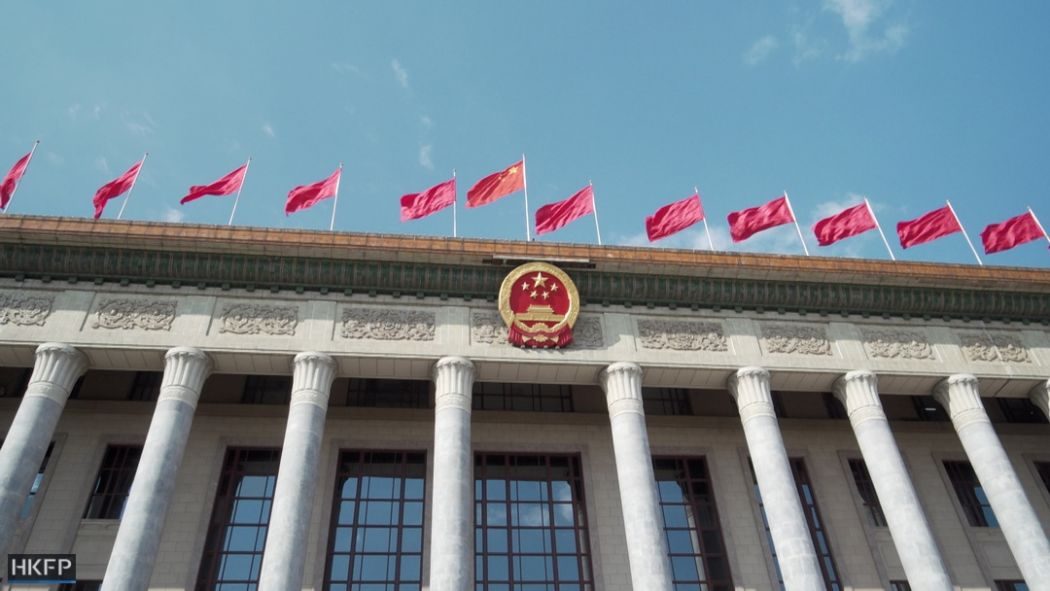Ren Zhiqiang, an outspoken Chinese tycoon, who in a February essay blamed the Coronavirus outbreak on a Party culture that prioritizes propaganda, flattery toward Xi Jinping, and silences free speech, has himself been silenced. He disappeared last month, joining a growing list of recent whistle-blowers who have gone missing after speaking out.
Last Tuesday, Beijing authorities announced that he has been placed under investigation for “serious violations of discipline and law.” But we shouldn’t be fooled. His disappearance and the system into which he has been placed has nothing to do with the rule of law and everything to do with the institutionalization of enforced disappearances under Xi Jinping.

We all know that China is not safe for human rights defenders, who routinely face abuse, disappearance, or imprisonment. While Ren is no radical, this decades-long Communist Party member’s disappearance is related, the latest example of the same systemic problem.
Ren’s disappearance, should be seen within the broader context of China’s ever-expanding use of enforced disappearances, and his case especially exposes the lesser understood National Supervision Commission and its abuse-ridden custodial measure, Liuzhi.
Where Investigation is a Euphemism for Disappearance
After disappearing in mid-March, the first signs of Ren’s fate or whereabouts came last Tuesday, in a short statement from the Beijing Discipline Inspection Commission, a body under the National Supervision Commission, that he had been placed under investigation. He is likely held under a form of detention called Liuzhi.

Established in 2018, through a Constitutional amendment, the National Supervision Commission (NSC) replaced the Central Commission for Disciplinary Inspection (CCDI), which had become synonymous with its shadowy Shuangui system. Secret detention and torture were common.
The institutionalization of the NSC and its new form of detention, Liuzhi, was supposed to change all that, but instead it formalized it and effectively opened it up to wider persecution as China has embraced governance through disappearance.
Liuzhi, rather than improving on the widespread violations in the previous Shuanggui system, borrowed heavily from another rights-abuse prone system in place since the 2012 Criminal Procedure Law, “Residential Surveillance at a Designated Location” (RSDL), of which I have researched extensively with Safeguard Defenders.
In Liuzhi, like RSDL, the suspect is held in custody at a secret location for six months. You are held incommunicado without access to family members or lawyers—an enforced disappearance—often in prolonged solitary confinement.
In Liuzhi, interrogations are frequent. Forced confessions are common. The risk of torture is high.
Such practices flagrantly violate international human rights law, that China tries to hide behind exceptions in domestic law. But such abuses are impermissible under any circumstances. In China they are increasing.
On paper the NSC has jurisdiction over far more than just China’s some 90 million Communist Party members, but also a massive target group including nearly any government staff, managers at state-owned enterprises, and virtually anyone they deem relevant to a case of Party concern. This is no Orwellian exaggeration. China has institutionalized disappearances for anyone deemed a threat to the Party.
Out of the Shadows
Somehow, despite evidence of a clear pattern of human rights abuses, the United Nation’s Office of Drugs and Crime, last October, signed an MOU with the National Supervision Commission. The announcement was shocking but went relatively under the radar, much like the NSC itself. Neither should the U.N. nor any international or government body partner with a Chinese state organ responsible for widespread enforced disappearances and torture.

China has been wielding such systems for terrorizing and silencing Party opponents for years, and in a way this was part of Ren Zhiqiang’s admonition. There is nothing lawful about his disappearance or the system into which he has been placed. China must not be allowed to continue hiding its abuses behind the veneer of the rule of law, and the international community must not allow them to be normalized.
This is about more than a missing Party member, more than lawyers, more than journalists. It is about the institutionalisation of enforced disappearances and every time the Party claims a new victim we are reminded that no one is safe.
